
Genre is a word that makes a lot of new writers cringe. Many (mistakenly) believe any kind of boundaries will somehow impair or restrict creativity and crater imagination. This is why so many emerging authors (myself included) avoid learning about structure or how to plot until forced to…at gunpoint.
Fine! Yes, I’m being melodramatic, but close enough to the truth.
It’s easy to understand why we want to skip all that boring stuff. We’re eager to write, to create, to unleash the muse! Yet, in our haste, we can lose sight of what we stand to gain by truly understanding the fundamentals and respecting boundaries.
For any author who wants to eventually sell enough books to make writing a full-time occupation, genre is one of our greatest allies.
Genre Dictates Location
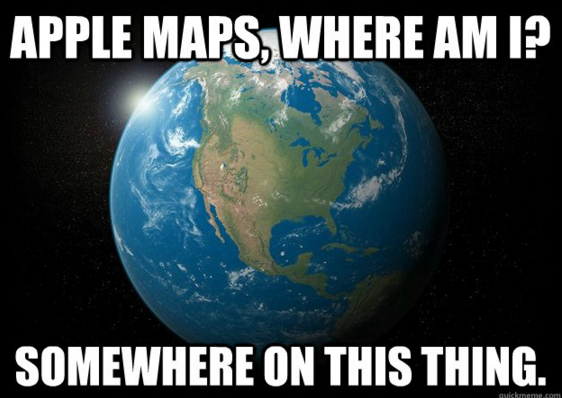
Location, location, location. Yes, I remember being a neophyte, breaking out in hives when anyone mentioned I needed to choose a genre *shivers*. My book wasn’t a genre, it was all genres. It was a novel everyone would love. I didn’t need something as prosaic as…genre.
Yes, I was a clueless @$$hat so y’all can already feel better about yourselves. When we’re new, obviously we don’t understand the intricacies of the publishing profession. Why? BECAUSE WE ARE NEW.
***By the way, it is okay to be new. We all begin somewhere. Stephen King didn’t one day hatch as a mega-author.
Before we even get to how genre impacts story, we must remember publishing is a business. Many of you long to submit to an agent in hopes of a sweet contract with the Big Five. Great! You yearn to see your books on a shelf in a bookstore. Wonderful! Me too. *fist bump*
So where would the bookstore shelve your novel?
This is a critical question all writers must be able to answer. Ideally, we need to know our genre before we ever begin writing the novel, for reasons we’ll get to in a moment. But first…
Genre Lands Book Deals
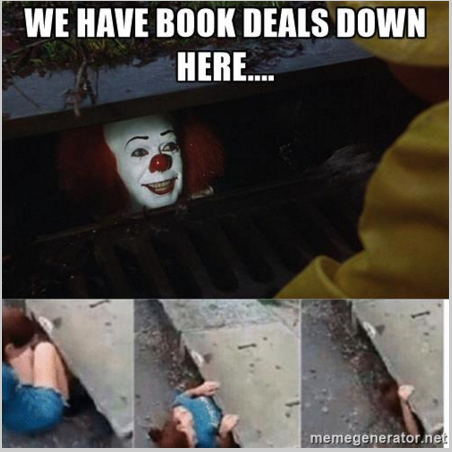
Meh…there are better ways.
If we want to publish traditionally (legacy) the first step—beyond finishing the book, obviously—is landing an agent. Writers who take the business seriously research agents ahead of time because this is a partnership.
We don’t want just any agent, we want the right agent. Conversely, agents aren’t looking for any book, they’re on the hunt for books they can sell.
Most agents have a list of the sort of books they’re in the market to represent (which genre). Thus, if an agent’s bio states she’s looking for Young Adult and New Adult novels, we’re wasting her time and ours by querying our Middle Grade series. By doing a bit of research, we can locate agents who’ll be the ideal fit.
Agents create these wish lists for a reason. They know publishers all have wish lists, too. The agent’s job is to pay attention to those wish lists and hustle to deliver the goods. Their goal is to sell our book to a publisher and negotiate the sweetest deal possible for us (the author), because this benefits them, too.
Agents pay attention to the publishers’ shopping lists. If the publishers are no longer wanting Dystopian YA novels, the agent then knows that trying to sell the next Hunger Games is a fruitless endeavor.
Even if our book IS the next Hunger Games, agents won’t rep it because they already know they’re highly unlikely to sell it.
Genre Sells Books
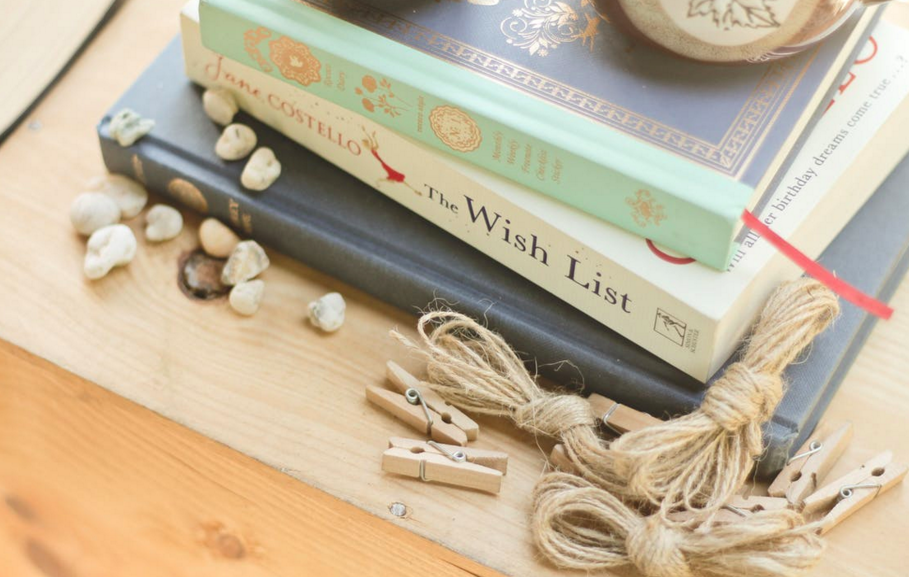
Now, traditional publishers might reject a certain genre for any number of reasons that have nothing to do with the quality of the book. Maybe they’ve already filled the X amount of slots reserved for a Dystopian YA. They don’t want to oversaturate the market. Perhaps Dystopian YA is not selling like it used to because Steampunk YA is picking up steam *bada bump snare*.
Thus, if you have an amazing Dystopian YA, you can go indie (if they’re open to representing it) or self-publish. Genre is still incredibly important because when we list our book for sale on-line, again, we have to tell Amazon (and other on-line distributors) where our story belongs.
Major publishers do, too.
Genre will directly impact metadata and will serve as a guide for keyword loading within the product description. Genre and the associated keywords will also influence which books are listed alongside ours (or vice versa). When we look up Gone Girl, we see…

This is how on-line retailers help readers find books they’re likely to enjoy more easily.
Genre Draws Fans
This is one of the reasons we really don’t want to write a novel totally unlike ANY other. The story never before told is a unicorn, first of all. It doesn’t exist.
Also, a novel that can’t be fit into any genre is unlikely to draw fans. Whether readers are browsing a bookstore or browsing on-line, they generally know what sort of books interest them and head that direction.
If they’ve just finished Gillian Flynn’s Gone Girl and they’ve read all of Flynn’s other books and want to read more books LIKE hers, genre is the flashing arrow pointing readers to similar novels (and authors).
This is a fantastic way for authors who aren’t yet household names to be discovered. Fans of the genre can then evolve into fans of that author.
Because readers can discover our work on a shelf or on-line, our odds of selling more books vastly improves.
This isn’t rocket science. People are unlikely to buy something they a) don’t even know exists or b) can’t find.
Genre Builds Brands
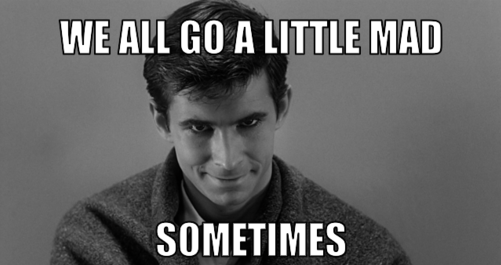
As Cait mentioned in her post on best practices for publishing success, genre focus is a major factor in becoming a successful author. When we focus on a specific genre we build an author brand and cultivate a devoted fan base far faster.
A qualifier here, though. Just because we write a Psychological Thriller doesn’t mean we must only write Psychological Thrillers forever and ever. Often genres have ‘kissing cousins’ and, so long as we remain within that general genre region, it’s all good. Suspense, Mystery, Thriller, Sleuth, are close enough to count.
Once we’ve published enough books, built a solid brand and cultivated a large devoted fan following, then we gain more freedom to try something new.
Genre Helps Plotting
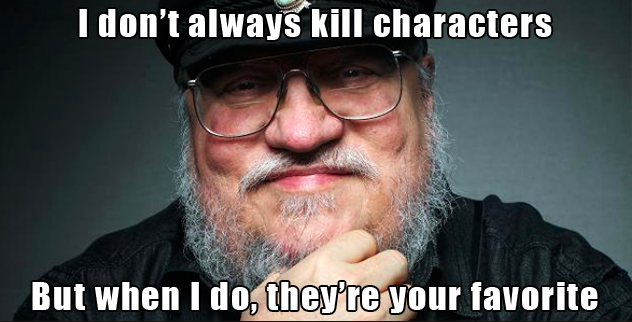
When we choose any genre, there are certain reader expectations. Once we know what’s expected, we can then deliver what readers want. We also have a better idea how to plot. If we don’t understand how/why a thriller is different than a suspense, that’s a problem.
Let’s use these ‘kissing cousin’ genres as an example…
A thriller has large (global) stakes on the line. In the beginning a bad thing happens and it is a race against time to stop the MASSIVE bad thing by the end.
For instance, Lee Child’s debut novel Killing Floor is about a former MP-turned-drifter thrust by fate into a problem with global consequences. Reacher’s goal is to stop bad guys’ plan to inundate the market with counterfeit bills (which would destabilize the U.S. economy).
A suspense has more intimate stakes. In Thomas Harris’ book The Silence of the Lambs, the goal is to find and stop Buffalo Bill from murdering Size 12 women for his ‘woman suit.’ Ideally, Agent Starling will stop Buffalo Bill before the latest victim (a senator’s daughter) is killed. The stakes, however, are not global.
The F.B.I.’s image is at risk, Starling’s career is on the line, the latest victim’s life is in jeopardy, but overall?
Skinny girls are totally safe.
When we understand the dictates of a genre, we can plot better and also know what we’re selling (to agents, publishers, and readers).
Genre and Structure
Since this week is my birthday and the week I am re-launching my novel, The Devil’s Dance I’m going to indulge 😀 .
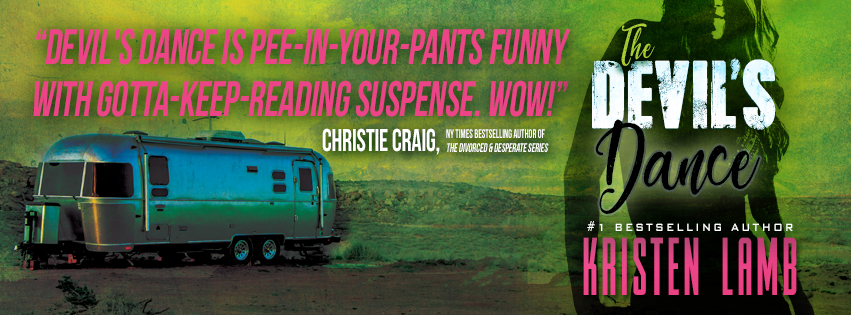
My precious…
I’ve been blogging for a while about structure, and we’ll deep dive the different types of structure and how to use them and why and when more in another post. All have pros and cons.
Some structures are better suited for certain genres. When we know what genre we are writing, then selecting the perfect framework becomes easier.
The most well-known and widely read is the traditional three-act Aristotelian structure. This story structure works as well today as it did a couple thousand years ago. My debut novel is a mystery-suspense and I used traditional three-act structure and ALL THE COLORS!
Why THAT Structure?
I chose this straight-forward structure because, for me, it was the best scaffolding for the story I wanted to tell. I wanted to craft a story that blended the humor of a Janet Evanovich with the gritty edge of a Dennis Lehane. I’d always joke that my book was Legally Blonde meets Killing Floor. Since I was already being ‘creative’ with the KIND of story I was telling, I felt it best to not also try to be creative with structure as well.
***No novel quadruple axel for me, thanks.
I wrote The Devil’s Dance purely to entertain. The sort of novel one might inhale on vacation, or when stuck in an airport. Fun, gritty, straightforward and a very fast read. Since I wanted it to be a quick read, linear structure was ideal.
Yet, maybe we want to offer the reader a challenge beyond what straightforward linear structure can offer. This is when we might select a non-linear structure. A fantastic example of this is Into the Water by Paula Hawkins, which is also a mystery-suspense.
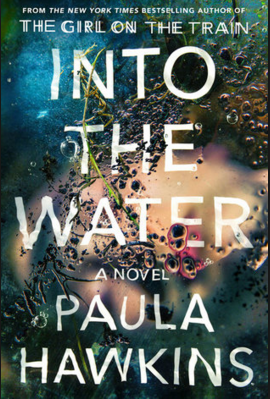
Granted there are at least nine POVs and shifts in time ranging from the 17th century all the way to the 21st. The time shifts and different POVs delivered red-herrings galore. For mystery fans who want a challenge?
This book definitely is a brain-bender.
Keep in mind, though, that the downside to non-linear structure is readers can easily become confused, bored or lost. Good thing Paula Hawkins is a master storyteller, just sayin’. I’m on my third pass through to catch what I missed.
In the End
Genre is incredibly helpful in a vast number of ways. We can know and meet (then exceed or challenge) reader expectations. Since we know what fans want, we can serve them something they want or even something they never KNEW they wanted (I.e. Harry Potter). Knowing the story we long to tell helps us plot faster, since the objectives are clearer.
Once our story is complete, we know how to query our novel and to whom. Also, when the book is finally published, genre helps readers find our books!
I look forward to helping you guys become stronger at your craft, and next time we’ll resume talking abut structure. Those new to my blog, I hope you’ll check out this series. Look to the column over there–>
Need More Help? I Live to Serve….
For anyone who longs to accelerate their plot skills, I recommend my On Demand Plot Boss: Writing Novels Readers Want to BUY. Two hours of intensive plot training from MOI…delivered right to your computer to watch as much as you like 😀 .
I’m offering The Art of Character (March 22nd 7-9 EST). More advanced material, and lots of FUN! Just because we’re tackling advanced material, doesn’t mean we can’t make it a party. As always, recording is included with all classes FREE of charge 😉 .
Also, my Bullies and Baddies: Understanding the Antagonist is a great follow up, and this class will help you plot faster and tighter than ever. It’s being held March 29th (7-9 EST).
I love hearing from you!
And am not above bribery!
What do you WIN? For the month of March, for everyone who leaves a comment, I will put your name in a hat. If you comment and link back to my blog on your blog, you get your name in the hat twice. What do you win? The unvarnished truth from yours truly. I will pick a winner once a month and it will be a critique of the first 20 pages of your novel, or your query letter, or your synopsis (5 pages or less).

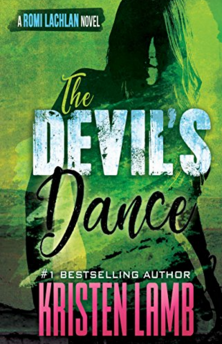







32 comments
6 pings
Skip to comment form
Outstanding help re: genre. I am going to Amazon now to find my story’s genre.
Thank you!
My local, independent bookstore does not organize their titles by genre. Well, they have a Sci-fi section, very large. They have their non-fiction categorized. For some reason their fiction is generally not broken into genres and I cannot understand that for the life of me.
Author
Maybe to encourage people to try something new? Would make me nuts, LOL.
Love The Devil’s Dance cover!
Excellent post, Kristen. Thanks for clarifying the difference between a thriller and a mystery and all the other awesome info.
I LOVE your book cover! It’s awesome and eye-catching! Happy Birthday, WANA Mama! Looking forward to your book release.
Such common sense spelt out in an entertaining way, which tells me to put your book on my to-read list. Love Janet Evanovich!
Yikes! Thought I was writing a thriller, but since it doesn’t have global implications, it’s more of a suspense. I think. Structure is my latest mountain to climb. You’ll be hearing from me, Kristen!
Thanks so much for your relentlessly insightful blogs!
Always looking forward to the next one.
Kristen, happy birthday and thanks for the great tips! You refer to The Art of Character as advanced material. Does that mean I shouldn’t sign up if I’m a noob? I’m in Chapter 1 of my first piece of fiction. I’ve been reading your blog for a few years but have never taken any of your courses. Not sure I should sign up for this one.
Author
You are sharp. It’s advanced in that so many of us already KNOW the ‘pink weight’ basics. This will bridge basics but then deep dive for more meat to the subject. It will be fun. I always strive to teach in a way that is accessible to all levels. Would love to see you there!
Genre is so important for pitching and indie publishing, so I am glad to see a post on it! Even for stories that cross into two genres, there is a place for everyone, especially in today’s digital marketing.
Thanks for the info, Kristen. My course budget is tight, so I’m trying to decide whether I should start with this one or maybe another (also trying to get my taxes done this week!). Is there a particular order you would recommend for learning all the crucial elements of a novel?
I’m thinkin’ … if I get my taxes done tonight, I’ll sign up for this one, unless you direct me to another. (I looked at your On Demand titles, and I’m thinking maybe the Plotting class.) Thanks for any recommendations. The only writing classes I’ve ever taken were in journalism school, so this is a new “genre” for me. 🙂
Most writers think they understand genre and don’t. Years back, a writer asked me to review his “action-adventure thriller.” So I checked out the book. The cover was clearly fantasy. I read enough of the sample chapters to get a fantasy with a secondary mystery genre. I turned down the review and he had a melt down, demanding to know why. I told him it wasn’t an action-adventure thriller, and he said yes, it was, because he had a big action scene at the end. Um, no. Misidentifying the genre is a very fast way to lose readers because now they can’t trust you.
And you have to be careful not to let your personal preference override the genre’s requirements. Like the writer who says “I like romances but hate happy endings.” Then you’re not writing a romance! I like stories with a lot of characterization, but I was letting it overbalance my world in my spec-fiction. I took a genre structure class at the time and it was very eye opening. There was a lot I knew, and nearly all of it was wrong! So it isn’t just as important to read, but to study carefully to understand and be aware that personal preferences will color what you know.
Kristen….you are so effing funny AND knowledgeable! Yours is the only blog I subscribe to because all others pale in comparison (if there is a comparison…which most of the time there is no comparison) Just saying. Thank you for keeping on keepin’ on even though it might seem disappointing and discouraging at times. Love the Viking hat and your true grit personality. That you for sharing your authentic self.
Author
I appreciate the loyalty and the comment. It’s good to hear you enjoy the posts because they are a LOT of work. Granted I have fun and it is a labor of love. Just want you guys to have all the information I had to learn the hard and painful way, LOL.
I especially enjoyed the section on genre helping plotting. Overall, this post was a fantastic reminder of all things “genre” for us genre writers.
You’re the best. Keep ’em coming.
I’m going to try this for the new novel I’m writing. I’m going to try a new way to write it, organize it, think about it, “genre” it. Lawd. It’ll probably give me a migraine but I’m determined to do something different this time, just because. Thank you for the help I’ll really need!
Author
Might not be as bad as you think. Genre simply gives us guideposts. If we want a romantic book, but the love interest turns out the be the BBT (antagonist) to be defeated and there is no HEA…that is NOT a romance. If we sell it as one, we’ll get rejected or a bunch of ticked off reviews. THAT is because it is a Women’s Fiction. I had that happen with a follower one time. I looked at her works and gasped. I said, ‘You are in the wrong genre!’ She relaunched the book as Women’s Fiction not Romance and suddenly was getting great reviews.
So it’s kind of a basic recipe for what the genre IS. Doesn’t mean we can’t be creative. But we can’t advertise Mexican food then serve spicy BBQ. Even if it is fantastic spicy BBQ, it is NOT Mexican food so patrons would be (rightly) annoyed.
Thanks for this clarification Kristen as I’m currently writing a paranormal with a romantic element. As the love interest is the antagonist, then it’s definitely not a romance. 😉
Author
Yeah would just be probably Paranormal Suspense or something. I wouldn’t classify as a romance since romance has pretty clear expectations namely an HEA.
I need help in this area. Didn’t you write another posts on different genres a while back? I’m clearer about what I don’t write (mystery, thriller, sci-fi, fantasy) than what I do write. Any suggestions?
Kristen, your sharp analysis and witty delivery make a blog that is engaging and entertaining to read, as well as educational!
Thank you for being there.
PRINT IS NOT DEAD, BUT RISES HARDER AND STRONGER (with good blogging skills)
Thanks so much.
Sooo, Kristen what is the difference between a thriller and a mystery?
Author
These genres frequently blend together. Usually it will begin with a crime committed at the beginning (a murder, theft, etc.) and solving the whodunit being tethered to stopping the BIG BAG EVENT at the end. Technically, my novel would be a mystery-suspense-thriller since there is a major theft at the opening and figuring out where the money went, who is really continuing to steal and why is key to saving herself, her family and also stopping a big bad global event.
I can’t imagine writing without genre. So my books have star ships and aliens and travel through space to other planets. Sci-Fi, right? But what kind of Sci-Fi? How do I narrow it down. Obviously speculative fiction, but where do I go with YA/NA book whose largest audience is 50 year old men trying to recapture their youth?
Author
I would go look at books similar to yours on-line and see what genre categories they’re using. Sci-Fi is the parent genre, but then you can whittle down to more specific. For instance, you have Mystery, but that can include Cozy Mystery, Historical Mystery, Mystery-Suspense, Mystery-Thriller, Crime, etc, etc.
Oh, we poor writers of literary fiction. I personally don’t think “literary fiction” is a genre, exactly, but it certainly is an Amazon category and it does the things you suggest genre can do: telegraph to readers what to expect, give you a place on the shelf, help you find representation, etc. It just isn’t as POPULAR a genre as, say, steampunk YA.
I’m making my first foray into a different genre with my next book and I’m looking forward to some of the benefits you’ve outlined here.
Author
Literary is usually cast into ‘General Fiction’ then other categories narrow to specificity. Like ‘Joy Luck Club’ is listed as Literature & Fiction, Women’s Fiction, and Asian American Fiction. My advice would be to look at a book similar to yours and see what categories they’re using to add specificity.
I think the ONLY thing I have going for me is that I’ve writing a YA Epic Fantasy. Wizards, magic, castles, a little first-love romance… Young girl discovers her powers and takes on the scheming establishment.
No dragons, though. I don’t like dragons.
Thanks for blog post. Added you to my feed.
Author
Thank you Matt and wonderful to meet you!
Kristen, thank you for the wonderfully thorough overview of the importance of genre.
Best wishes,
David
Your definitions of thriller and suspense novels may be the correct ones, but I’ve read books described as thrillers (like stalker stories, for example) that weren’t all that thrilling and certainly weren’t about a global threat. It seems these lines have been crossed by both authors and publishers, using those descriptive words to entice readers, as opposed to staying true to the genre.
Author
That is true. Often they will classify a story as something close for a number of reasons, and ‘sales sizzle’ is one. I think the only genre one really has to be careful about is romance. If there is no HEA (Happily Ever After) which, as I mentioned, has broadened in recent years to at least an HFN (Happy For Now) readers will penalize the book/author.
With thriller/suspense, most writers don’t know the formal definitions, so a lot of readers don’t either and are pretty lenient on classification. Sometimes a book might not be selling too hot classified one way, so they modify the category. Or a legacy publisher might be full up on their ‘docket’ for thrillers but find a crazy good thriller they WANT, so they fudge classification. Since these genres are close kissing cousins there is a lot more leeway.
Horror, is a good example. It used to have it’s own section in the bookstore. Then the slasher movies of the 70s and from that point on gave horror a really BAD reputation. What most people don’t realize is horror is probably the closest genre to literary. Some of the finest literature of the 18th, 19th and 20th century was actually horror (Mary Shelley, Shirley Jackson, Bram Stoker, Edgar Allan Poe). After the slasher flicks around the time of the Vietnam War, horror was considered base (which is very far from the truth).
So authors like Stephen King, Dean Koontz, etc. were suddenly slated under suspense, general fiction, science fiction, and speculative fiction to distance from the ‘bad reputation’ that horror suddenly had.
[…] https://authorkristenlamb.com/2018/03/genre-fundamental-story-success/ […]
[…] Allen focuses on word count guidelines for all genres and non-fiction, and Kristen Lamb delves into how genre is fundamental for story success. Juliet Marillier ponders: what is fantasy, […]
[…] writing requires mastering the broad strokes. Kristen Lamb tells us how genre helps you write a successful story, Jami Gold shows how to create a positive theme in spite of bittersweet endings, and September C. […]
[…] Blogger Kristen Lamb gives some great (and entertaining) insights on the importance of genre, as well as giving some good genre definitions here. […]
[…] ALSO a race against time to stop some far greater crime at the end? Welcome to the thriller (refer to post on GENRE for more). It’s a thriller if we know who we are stopping, a mystery-thriller if we […]
[…] more on details on genre (and the many variations), I recommend my older posts Fizzle or Sizzle? How Genre is Fundamental for Story Success and Choosing a Genre: Anatomy of a Best-Selling […]